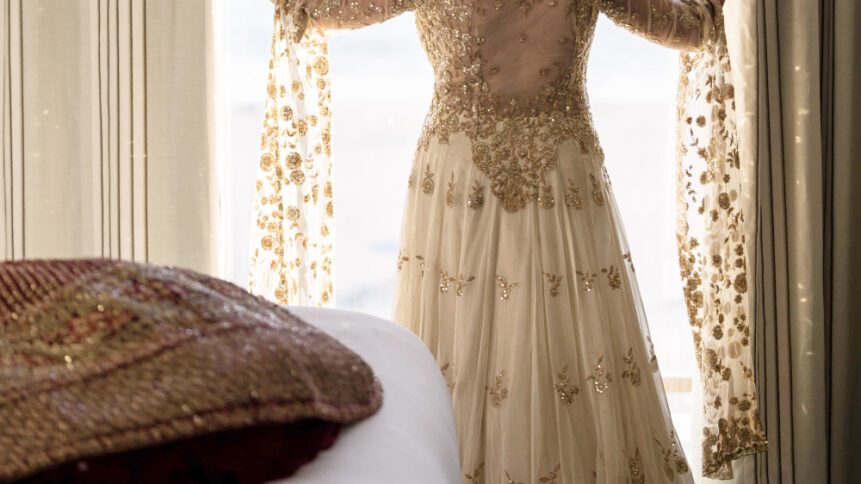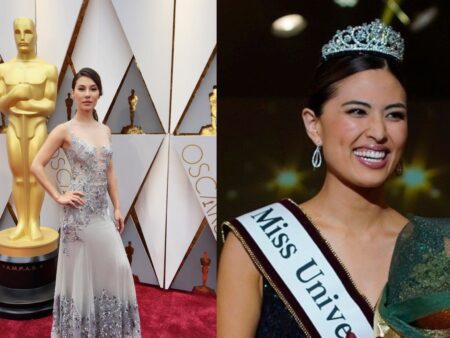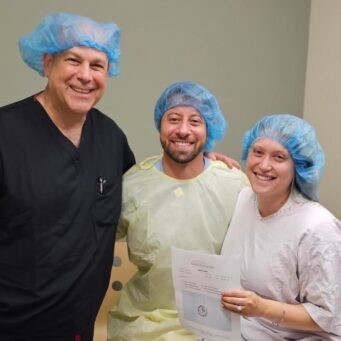
When we got married five years ago, our friends and family could not help but exclaim, “You are going to have such beautiful babies! Mixed babies are the best.”
They contemplated whether these imaginary children would have my olive skin tone or my husband’s blue eyes, and all the varied permutations and combinations that would eventually culminate in our offspring.
Naturally, we assumed we could have kids, so while we brushed off these overtures as champagne-induced talk, we smiled at each other, knowing that we would have the coolest babies ever.
I am of South Asian descent, Pakistani to be specific, and a practicing Muslim. My husband is of Midwest descent, Michigan to be exact, and when he is not praying to the football deities, he is a Methodist.
While our connection was instant, we both had reservations regarding the long-term feasibility of our relationship. There was so much to navigate— cultural differences, religious norms, societal pressure, along with what at that time seemed the most daunting task, telling our families.
There were moments where it seemed easier to walk away from each other than pursue a marriage, one that would require us to contend with intercultural challenges. We decided to have the difficult conversations at the outset so that there would be some guiding principles for the life we were about to embark on, rather than a tenuous foundation built upon a “we’ll-figure-it-out-when-we-get-there” mentality.
We had these conversations over sushi in Soho in the most honest, thoughtful and rational way twenty-six-year-olds are capable of. The crux of the conversation was: How would we raise our children? Would they celebrate Christmas or Eid, or both? How would they learn to speak Urdu?
Now five years of married life later, three of which we have spent trying to start a family, we are no longer asking how will we raise these children, but rather will we ever meet them?
My fertility journey is long and freckled with pain; 5 IUI’s and 6 IVF cycles later, I don’t know if I am any closer to becoming a mother. If you looked at me, you would not be able to guess how deep the infertility runs.
Every doctor I have spoken to has said the same thing: You are young, healthy, your hormone levels are all within normal range, there is no obvious reason why this shouldn’t work. My husband has been tested as well and everything has checked out. And yet, one of the more frustrating facets of this journey has been the lack of a concrete diagnosis.
Now five years of married life later, three of which we have spent trying to start a family, we are no longer asking how will we raise these children, but rather will we ever meet them?
I may have some type of endometriosis, I have issues with egg quality, or there is dyssynchrony in my body’s response to medication.
Sometimes I wish they would discover something wrong, because I am severely impatient and identifying the problem would mean that I could expend all my energy on finding a solution. Professionally, I’ve never met a problem I couldn’t solve with dedication and hard work, so that has seemed like a logical way to deal with my infertility.
I have done everything that was asked of me: weeks of painful injections, acupuncture, yoga, ridding my home of all synthetic products, journaling, a fertility diet, a supplement regime—all in the hope that if I did my part, maybe fertility would follow. Unfortunately, none of it has worked. As I tried to exert more control in this process through these pursuits, the less of it I had. I felt guilty every time I counted the minutes during acupuncture sessions. Each infrequent sip of coffee taunted me. I was afraid to journal because I did not want to be alone with my thoughts.
The worst part was that I eventually, foolishly, managed to convince myself that our fertility issues stemmed from our being an incompatible couple.
We weren’t meant to be together and infertility was the karmic reality of our union. Should we have taken cues from society, religion, and culture and settled for individuals who checked the same boxes on a questionnaire? Would we have children then? I blamed myself, often reducing my marriage to an arithmetic sum; if I took myself out of the equation, substituted someone else, there would indubitably be proliferation. When you are desperate and defeated, the mind takes you to strange uncomfortable places, disfigures the truth, and forces you to believe something that is not true.
Thinking back to those naïve conversations we had before we were married, I see very clearly the intent to acknowledge our differences, the lofty objective to prevent future disagreements, and finally the obvious prematurity of these conversations. We were planning for a different future, one that was not accustomed to infertility, and in truth, one that we could not prepare for, regardless of our best-laid plans.
Had we known what we know now, what would we have done differently— said, “Fxxx it, you are my person,” or walked away?
Are we being punished? Tested? I don’t know.
What I do know is at that time the most pressing concern was what holiday our children would celebrate. Now when I think of Christmas I am only reminded of the two early miscarriages I had, both exactly a year apart— the week before Christmas. There is no celebration, I lost a pregnancy and found a spiteful relationship with holidays.
I have never had the courage to divulge my thoughts of incompatibility to my husband. Instead they manifest as “sorry’s” and “thank you’s”:
Sorry my eggs crap out at day four; Sorry that you have had to spend thousands of dollars on treatment; Thank you for giving me my shots, Thank you for still being here.
But I have never thanked or apologized to—myself. Instead, I continue to say terrible, unkind things to myself, when I should be saying: Sorry that you are going through this; Sorry that you feel sad; Thank you for being strong enough to withstand this; Thank you for not giving up.
Blame, guilt, shame, deserving are words firmly entrenched in the fertility vocabulary, and when self-doubt casts its shadow over your endeavors to create new life, it is convenient to reach for these emotions.
If instead I take a step back and reach for perspective, I would say that I don’t regret any of it—the premature conversations, our marriage, my husband, and the life we have built together. Perspective also helps me acknowledge that I don’t really actually believe any of this negativity. I was so caught up in my emotional upset and so desperate to become a mother that I couldn’t fight back against that harsh voice in my head.
That voice that was presumably trying to give me a “reality check” and protect me, instead fooled me. It led me to believe that we were being taught a lesson for choosing each other. Instead of an irrefutable lesson, I now look at it as a test, only one test, that makes me smarter for having faced it.
Before I become a mother, I need to nurture myself and that starts with recognizing the good in my relationship and counting our blessings: My husband’s unwavering commitment to me and the relentless pursuit of our child. That conversation over sushi that cemented the foundation of our marriage, and made us realize that despite our differences we believe in the same intrinsic values: kindness, honesty, and above all, love and respect for each other. There is no religion or culture that would punish us for believing that. The beauty of creating a home together that is diverse, tolerant, and enriched by its inhabitants – a place that would be a wonderful home for a child. If only we had one.
I eventually, foolishly, managed to convince myself that our fertility issues stemmed from our being an incompatible couple. We weren’t meant to be together and infertility was the karmic reality of our union.
My journey is far from over and I can only hope that the darker moments get smaller and shorter. In the meantime, we will continue to fight to have these children. Together.
I have never been a stubborn person, but this experience has made me obstinate, enabled me to recognize the strength of my own mind and body. And while I wish my journey was less arduous, there is no one else but my husband whom I would want to go through this with, differences and all. We will continue our foray with fertility treatments, in the hope of a child who is a true representation of the rich life we have built together.
Contributor
Aaiza Bokhari Fraye
Aaiza Bokhari Frayer has spent the past decade working for iconic fashion brands like Gap and Coach in strategy roles. After several years of coping with infertility and loss, she now shares her story at theassistedhatching.com. Aaiza lives in New York City with her husband and enjoys restaurants, boxing classes, and discovering local coffee spots.

Listen to stories, share your own, and get feedback from the community.


















